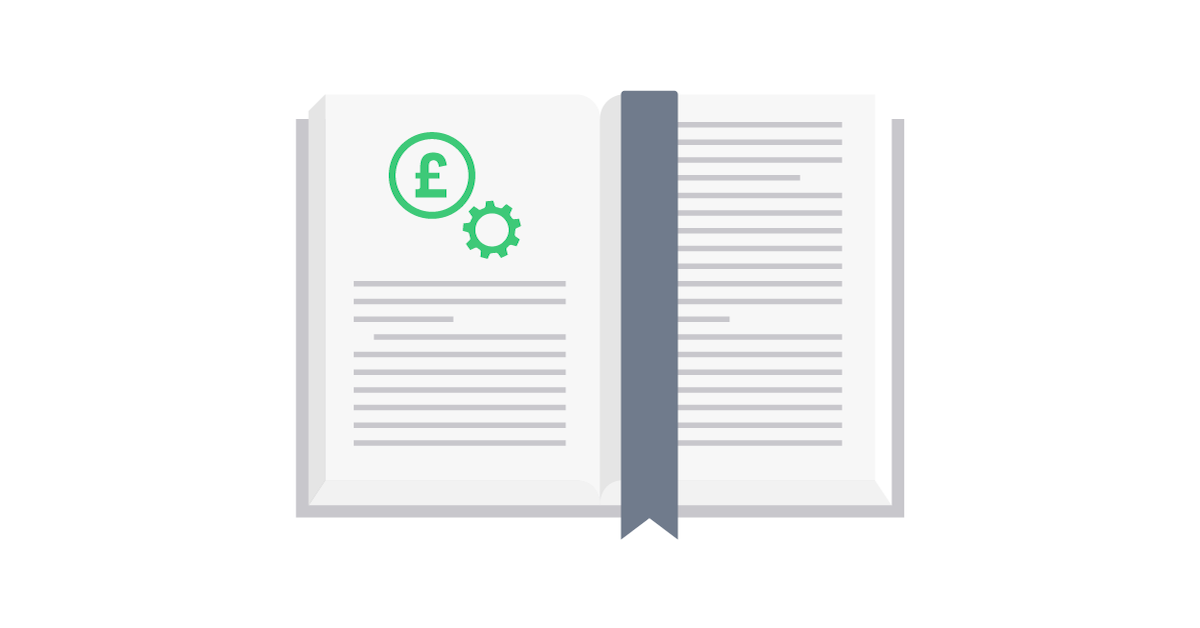
What’s the difference between my credit report and credit score?
Your credit report contains information about how you’ve managed money in the past six years. This can include things like:
Personal details, such as your name and address
Your credit history, such as what credit you’ve applied for, how much you took out, and if you repaid it on time
Public records, such as County Court Judgments and bankruptcies
Lenders may check information on your report when you apply for credit (such as an overdraft or mortgage). This helps them predict if you’ll pay them back, so they know whether to lend to you or not.
Your credit score is basically your report summed up as a single number. A good credit score means you’re more likely to get approved for credit.
How do I check my credit score and report?
Credit reference agencies (CRAs) gather information about you to make your report and calculate your score. You can check your report and score with any of the UK’s three CRAs: Experian, Equifax and TransUnion (formerly Callcredit).
Keep in mind that you have more than one credit score and report, since each CRA creates them in slightly different ways.
Can I check my credit score and report for free?
Equifax offers a free 30-day trial for its score and report, but after that it’s £7.95 per month. But you can get the same information free anytime via ClearScore. ClearScore makes its money by advertising financial products, rather than by charging you.
You can get your report and score free from TransUnion (formerly CallCredit) via its sister company, Noddle. Like ClearScore, Noddle advertises credit cards and loans – it also offers extra features for a fee.
Experian’s credit score is free (again, this is made possible by advertising financial products). Its credit report is included in the CreditExpert subscription – new customers can get a 30-day free trial, after which it’s £14.99 per month.
Importantly, you have the right to request a free report from CRAs: this is called your ‘statutory credit report’. It used to cost £2, but now it’s free thanks to a recent change in data law. And you can ask for it to be sent via email or post.
Statutory credit reports contain all the data each CRA has about you, but they usually don’t give you much help to interpret what it means. Because CRAs are keen for you to use their commercial services, the reports you get from their sister companies are often much easier to understand.
Why check my credit score?
Keeping an eye on your score can help you:
Understand your chances of getting credit
See if your credit history is improving
Spot the warning signs of fraud or errors on your report
Why check my credit report?
Taking a look at your report can help you:
See why your score may have changed
Understand why you may have been turned down for credit
See what lenders may find when deciding whether to approve you
Spot errors that may damage your chances of getting credit
Will checking my credit score damage it?
Nope! You can check your credit report and score as much as you like. It won’t damage your chances of getting credit, and only you and the CRA will know that you did it.
But having a lender check your report is a different matter. This happens when you apply for credit. It’s called a ‘credit search’ or ‘credit check’, and it’ll leave a mark on your report that temporarily lowers your score. So, it’s best not to apply for lots of credit all in one go.
What to look for when you check your credit score
When you check your credit score, the CRA will usually tell you which ‘band’ it falls in. There are typically five bands: excellent, good, fair, poor, and very poor.
Since each CRA uses a different scale for credit scores, their bands can vary. And in any case, the bands are just a guide – they don’t necessarily reflect what lenders think of your credit history.
What may be more useful is to see how your credit score changes over time. This can help you understand if you’re managing money well.
You should also investigate any sudden drop in your score, especially if you can’t think what might’ve caused it. This might suggest there’s a error on your report, or that you’ve been a victim of fraud.
What to check in your credit report
You might want to look for things like:
Reasons why you may have been turned down for credit (or why you may be rejected the next time you apply)
Financial associations that could be affecting your credit applications. A financial association means your report is linked to someone else’s, usually because you’ve shared finances with them
Errors that could be skewing your credit score, like an incorrect address or records that aren’t yours
Any accounts or debt you don’t recognise, as this could be a sign of someone using your identity illegally
If you think there’s an error on your credit report, you can get in touch with the CRA to ask them to fix it.
You can improve your credit score by doing things like registering to vote or paying your bills on time. Read our guide for some simple tips on how to build a better credit score.
For more comprehensive guides and helpful tips on how to make the most of your money, follow Monzo Money Tips on Facebook!